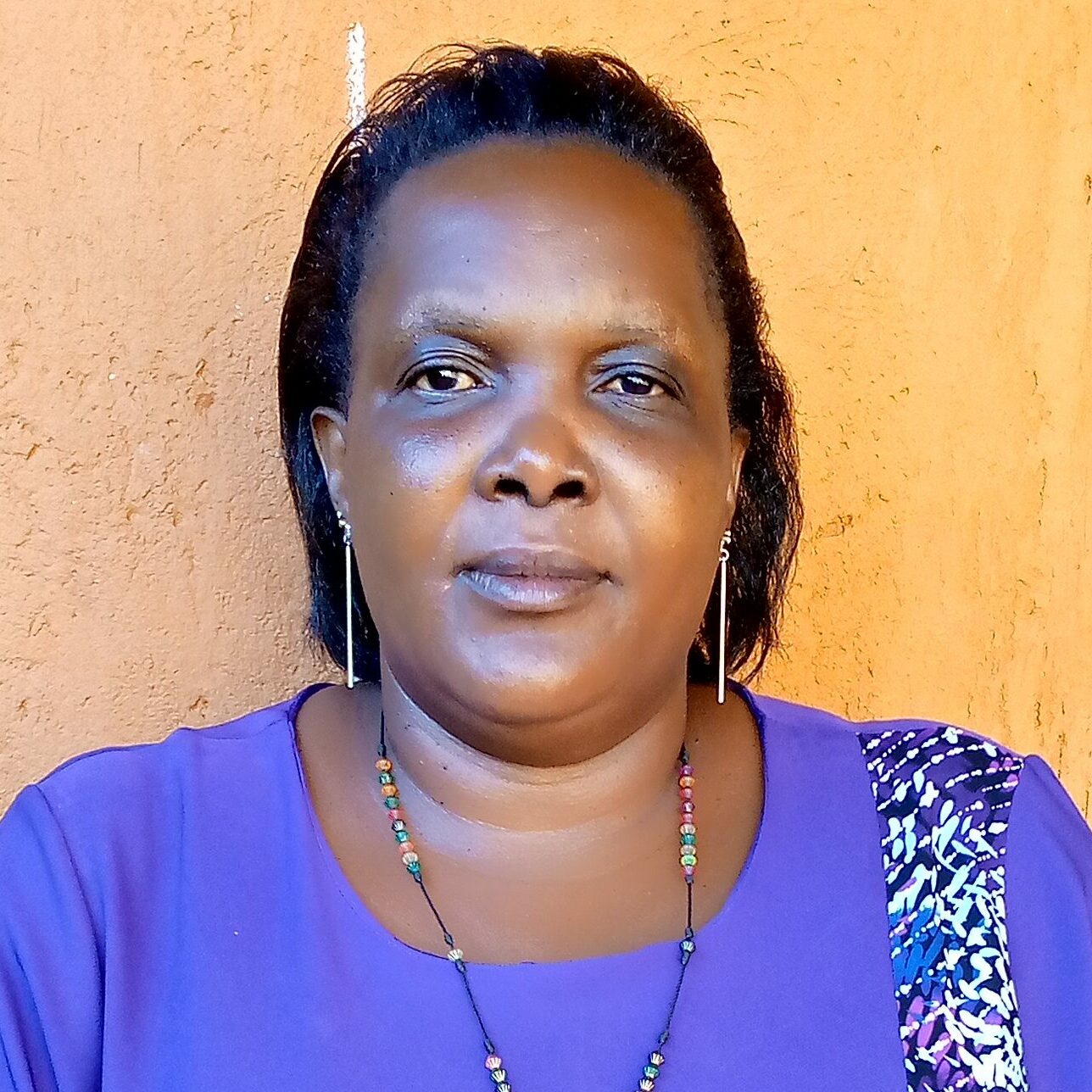
News
Leading the Charge
Play audio version
DJP Fellow Christine Oliver Dhikusooka Mobilizes Ugandan Women with Disabilities
September 23, 2022
JINJA, Uganda – When it comes to Christine Oliver Dhikusooka’s disability advocacy, women with disabilities are at the center. Dhikusooka is a woman with a disability, too—becoming so after contracting polio when she was four years old. Two years after her bout with the illness, people started falsely speculating about the cause of her disability: “People started saying … ‘She was bewitched … that one, those are family issues.’ Of course, they didn’t know that people can get disabled. By that time, people were thinking those are culture things.”
Today, Dhikusooka is a 47-year-old Disability Justice Project Fellow championing the rights of women with disabilities. She’s a local politician and co-founding executive director at One Voice Heard 4 Disability Uganda (OVH4DU), an organization based in Jinja, Uganda. OVH4DU advocates for “improved standards of living and rights through mobilization and inclusion of women with disability issues in mainstream development programs.” According to Dhikusooka, OVH4DU focuses on women with disabilities because “people don’t know their rights. Women don’t know their rights. Women’s rights are violated.”
In Dhikusooka’s view, there’s more room for Ugandan women with disabilities to get involved: “Of course, we need to continue making groups, making associations, making organizations of women with disabilities. After forming them, we need to network,” Dhikusooka says. “I think if we go on collaborating, networking, hearing from each other, I think it will be good.”
In 2021, Dhikusooka—for the third time—ran for Jinja District local government unopposed, representing women with disabilities. Her journey to local politics began 22 years ago during her stint as an administrative assistant at the Jinja District Union of Persons with Disabilities, where she was persuaded to run for office. As a councilperson, she has worked with others to pass policies like prohibiting the exclusion of children with HIV/AIDS from schools.
Recently, Dhikusooka merged activism and religion in the Roman Catholic Diocese of Jinja, working as a second-time treasurer at her local Council for Persons with Disabilities. When a new bishop was appointed to the diocese five years ago, she says, “He brought people with disability on board,” instructing parishes that every church must have a council for persons with disabilities. The council at Dhikusooka’s church has been advocating for accessibility ever since. “One, they didn’t know that … on the church building, we need accessibility. So now…we have accessible entrance on the church doors. … At my church, because of my presence in that council, I told my … parish priest in the council that, ‘Do you see, there’s no ramp here?’ And they constructed the ramp.”
Now, Dhikusooka’s learning to highlight her advocacy work with digital storytelling at the Disability Justice Project. Earlier this month, the second cohort of fellows from African countries began the 12-week workshop, and so far, she finds classes interesting. With the DJP, she’s eager to capture “catchy” stories focusing on women with disabilities that will attract audiences and make them more attentive.
Dhikusooka is building on the legacy of past DJP fellows; she recently watched “One Voice,” 2021 DJP Fellow Esther Suubi’s latest film on Ugandan women with psychosocial disabilities. “I liked it, I watched it, and I saw how [Suubi] was talking to her fellow women,” says Dhikusooka. “I’ve admired the way she works, and that’s where I want … to be.”
Michelle Faulkner (she/her) is a Sierra Leonean media advocate who has lived in several countries throughout the world. @2022 DJP. All rights reserved.
News From the Global Frontlines of Disability Justice
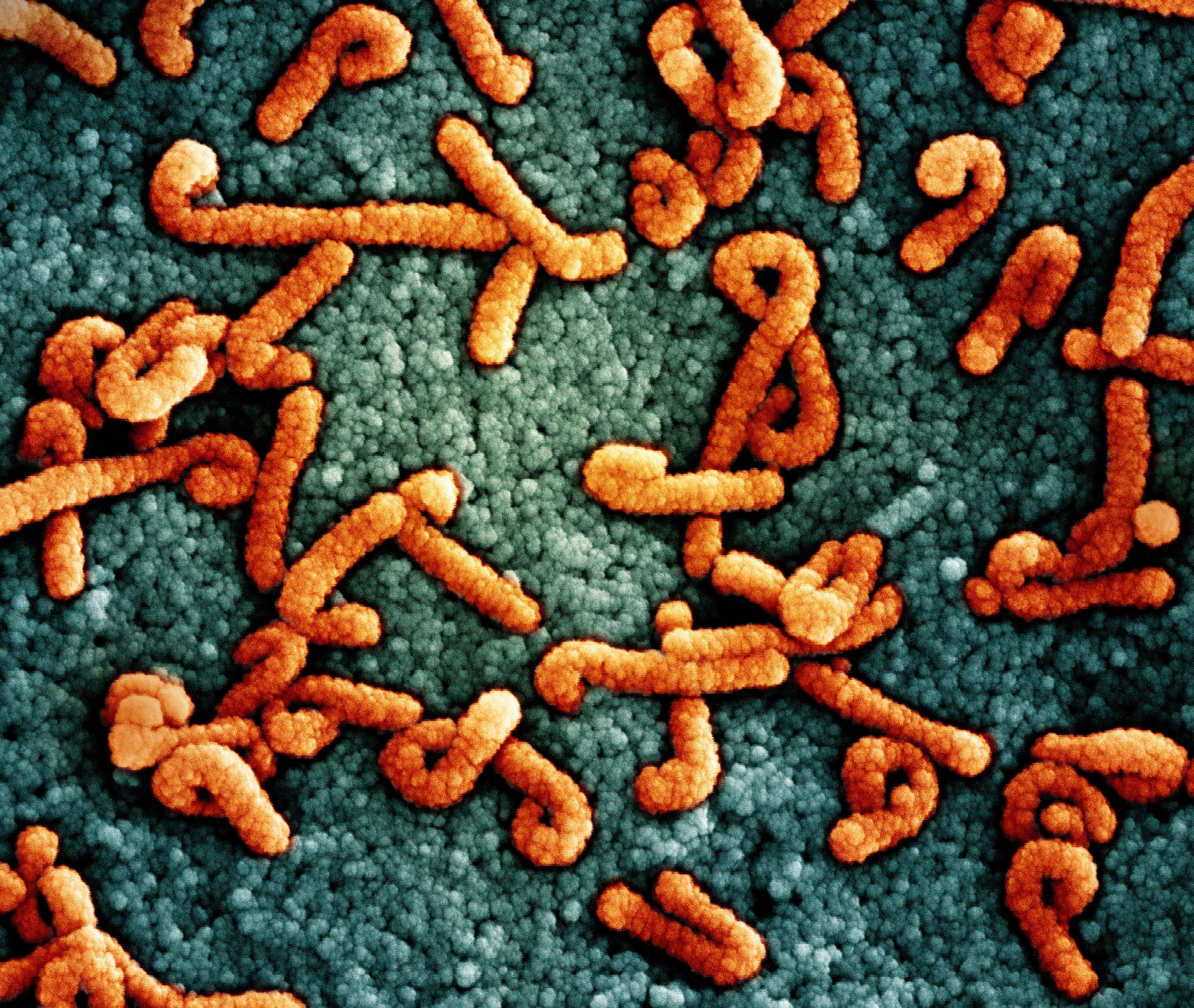
Rwanda’s Marburg Crisis
As Rwanda confronts its first-ever Marburg virus outbreak, people with disabilities face heightened risks — not only from the virus but also from the lack of accessible health information. “Without proper accommodations, such as sign language interpreters, captions, Braille, or visual aids, the Deaf and DeafBlind community may miss crucial information about how to protect themselves, symptoms to watch for, or where to seek help in case of infection,” says Joseph Musabyimana, executive director of the Rwanda Organization of Persons with Deaf Blindness.
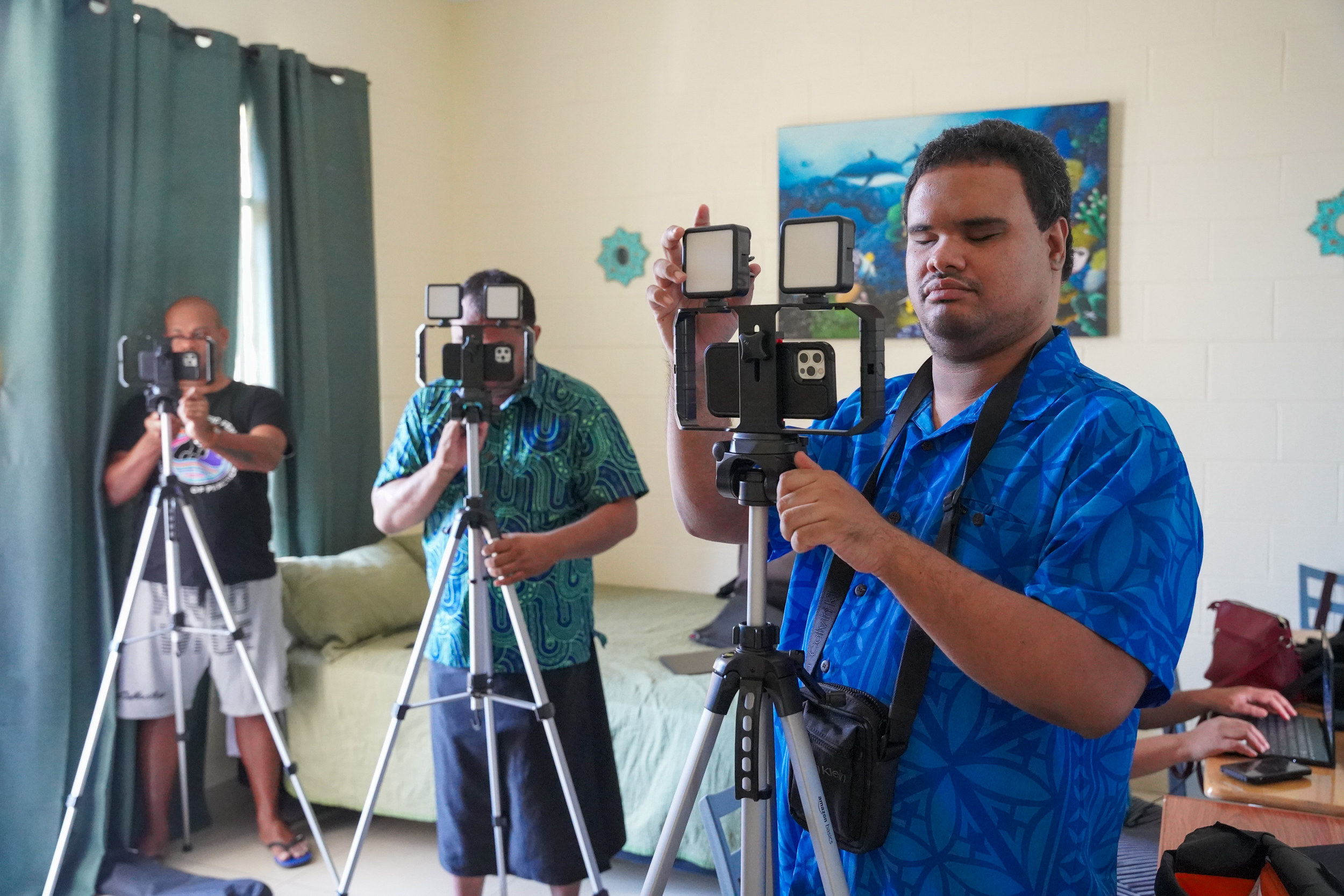
Capturing Vision Through Sound and Touch
Last summer, the DJP trained Indigenous activists with disabilities from the Pacific on the iPhone camera to create a documentary series on disability and climate change. With VoiceOver, the iPhone provides image descriptions for blind and low-vision filmmakers and offers other accessible features. “If you think about it, it doesn’t make sense for a blind person to use a camera,” says DJP filmmaker Ari Hazelman. “The iPhone gives you more avenues to tell your story in a more profound way as a blind person.”
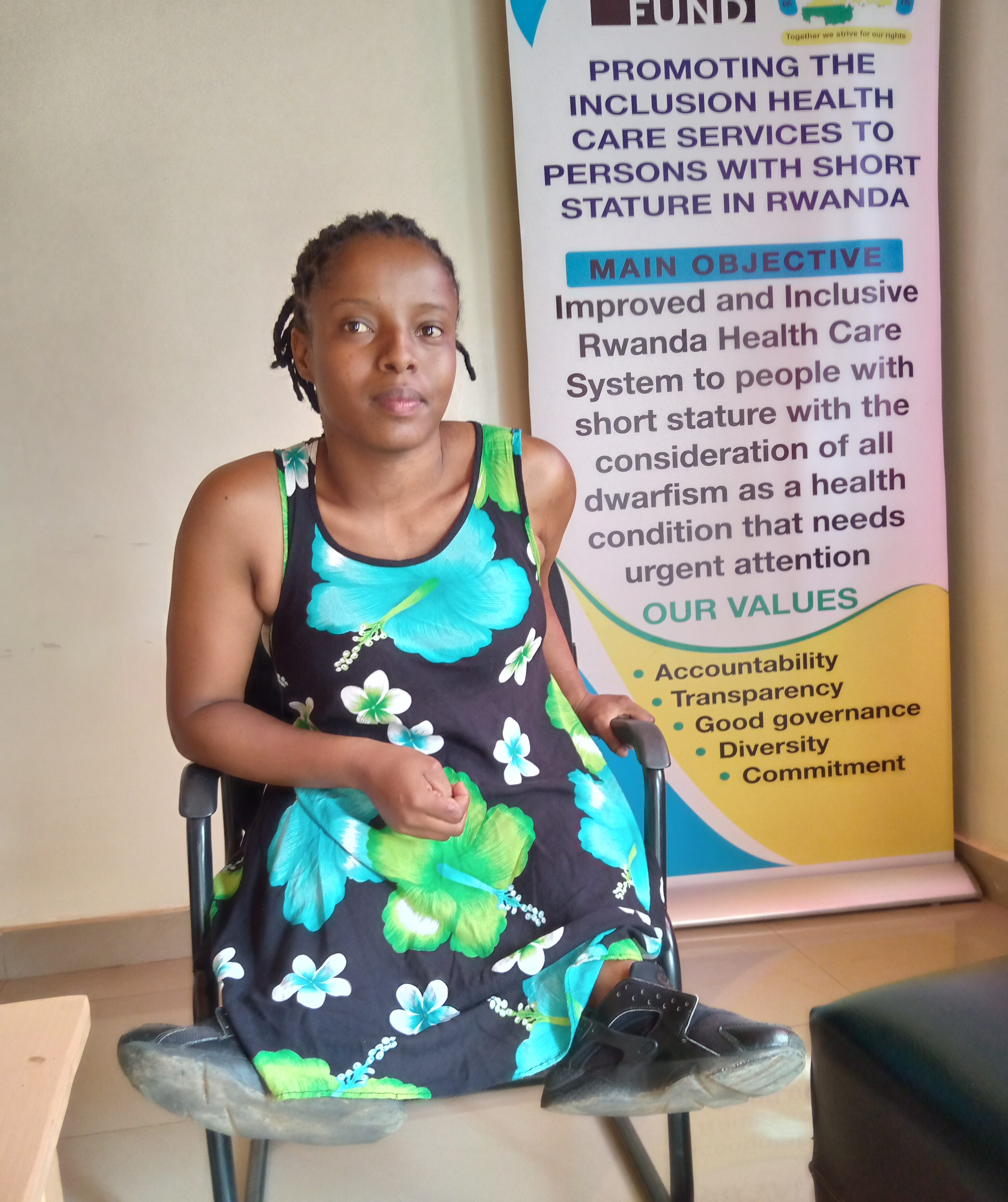
Work for All
The We Can Work program equips young Rwandans with disabilities to navigate barriers to employment through education, vocational training, and soft skills development. By fostering inclusive workplaces and advocating for policy changes, the program aims to reduce poverty and promote economic independence. Participants like Alliance Ukwishaka are optimistic that the program will enable them to achieve their dreams and showcase their potential. The initiative is part of a larger effort to support 30 million disabled youth across seven African countries.
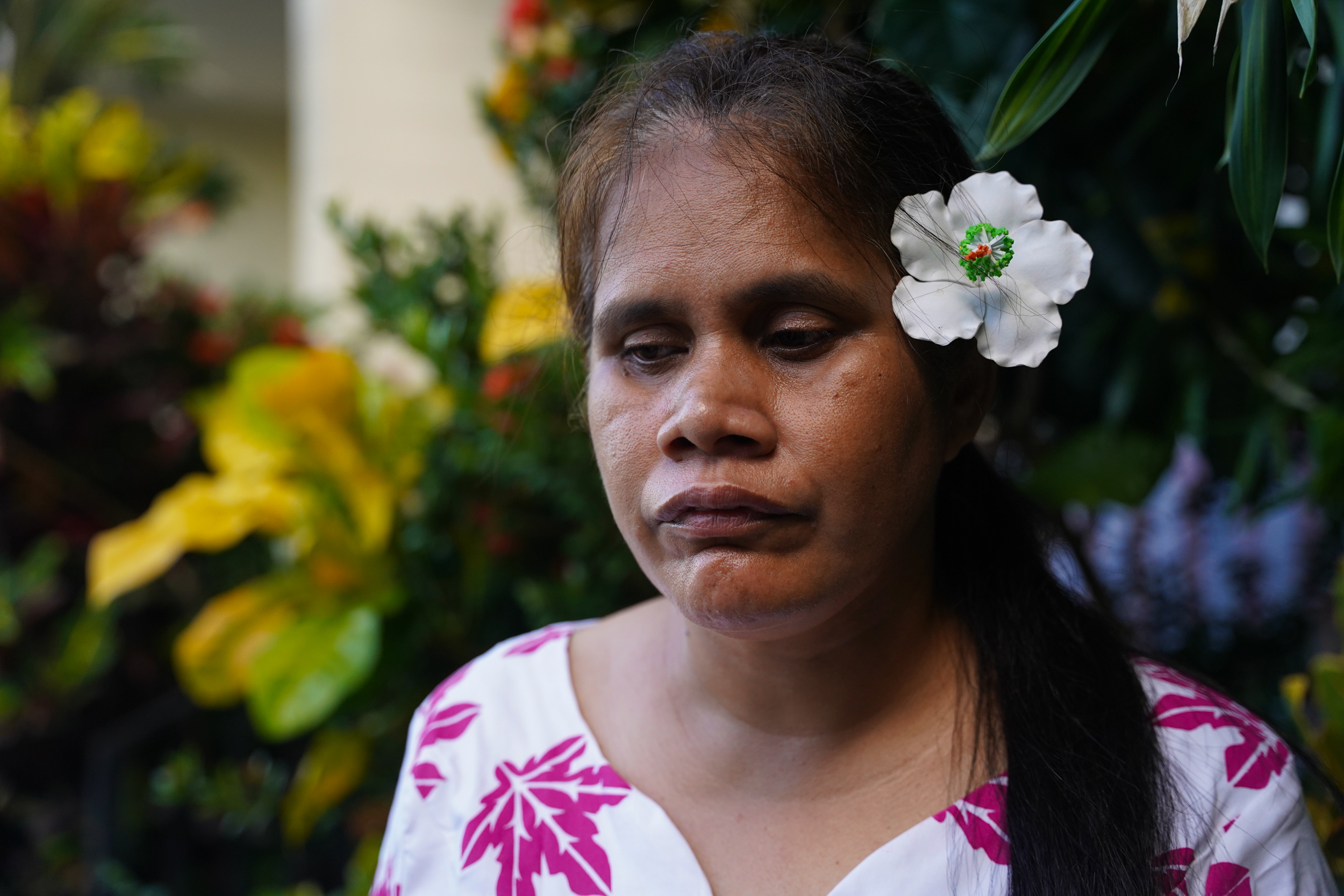
Global Recognition
Faaolo Utumapu-Utailesolo’s film “Dramatic Waves of Change” has been named a finalist in the Focus on Ability International Short Film Festival. The film, completed during a Disability Justice Project workshop in Samoa, highlights the impact of climate change on people with disabilities in Kiribati. Utumapu-Utailesolo, who is blind, used an iPhone with accessibility features to create the film. “Do not leave people with disabilities behind when [you] plan, implement, and monitor programs regarding climate change and disaster,” she says. Her achievement is a testament to the power of inclusive filmmaking.
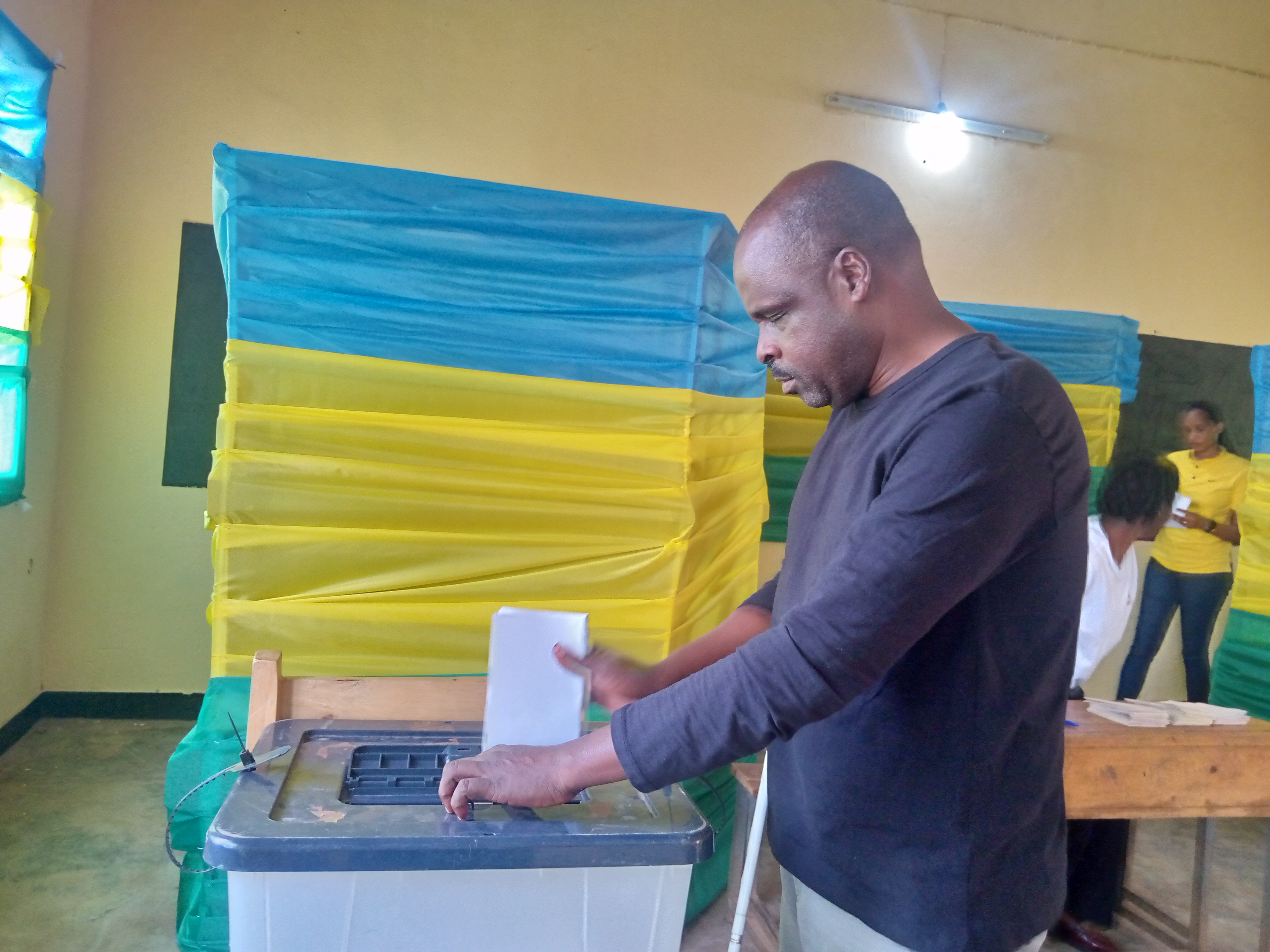
Advancing Democracy
Rwanda has made significant progress in making its elections more accessible, highlighted by the July 15 general elections where notable accommodations were provided. This was a major step forward in disabled Rwandans’ quest for equal rights and participation. “You cannot imagine how happy I am, for I have voted by myself and privately as others do accessibly,” says Jean Marie Vianney Mukeshimana, who used a Braille voting slate for the first time. “Voting is a deeply emotional and meaningful experience for a person with any disability in Rwanda, reflecting a blend of pride, empowerment, and hope.”
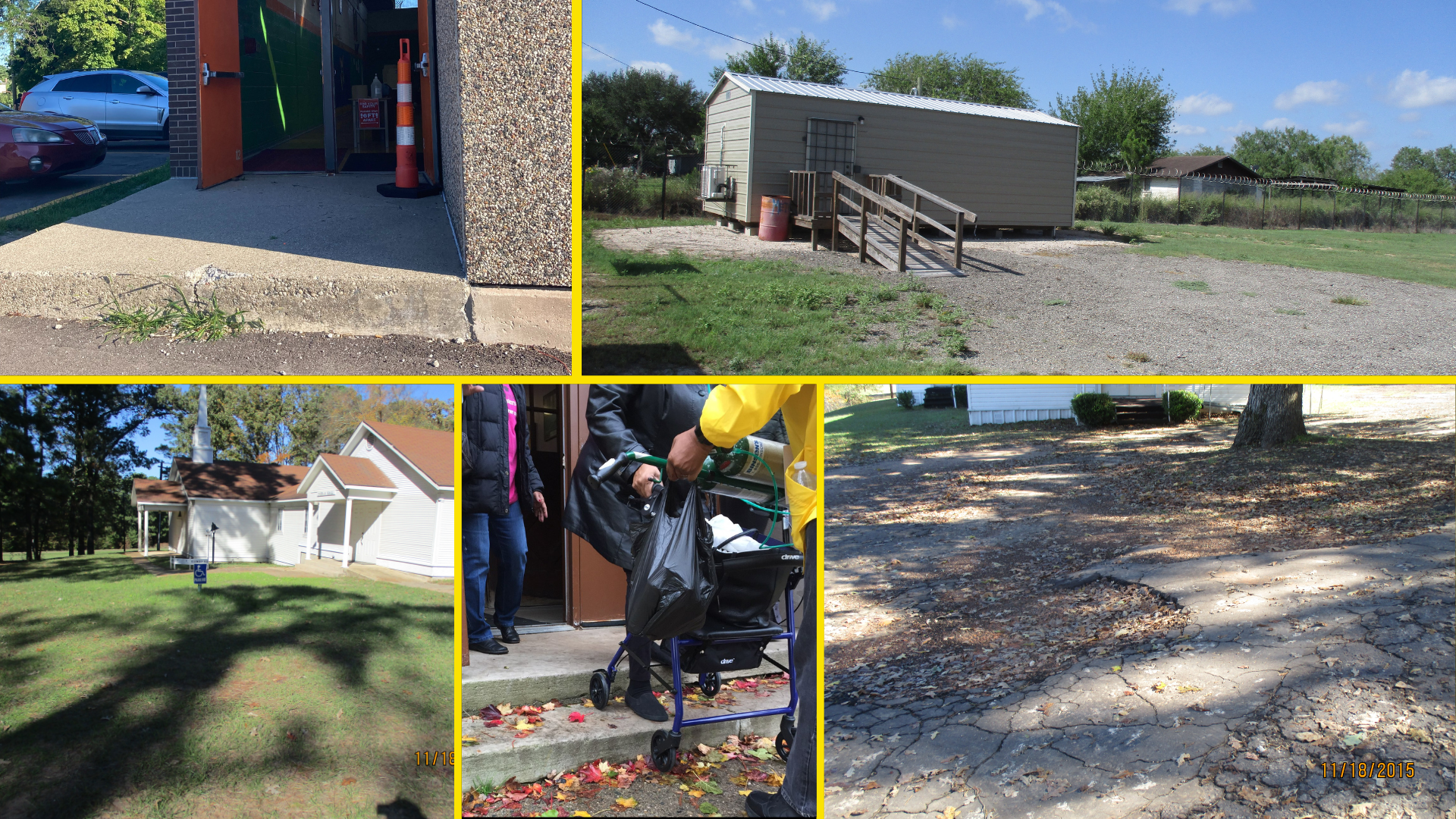
Barriers to the Ballot
Despite legislation like the Americans with Disabilities Act, barriers at the polls still hinder — and often prevent — people with disabilities from voting. New restrictive laws in some states, such as criminalizing assistance with voting, exacerbate these issues. Advocacy groups continue to fight for improved accessibility and increased voter turnout among disabled individuals, emphasizing the need for multiple voting options to accommodate diverse needs. ““Of course, we want to vote,” says Claire Stanley with the American Council of the Blind, “but if you can’t, you can’t.”